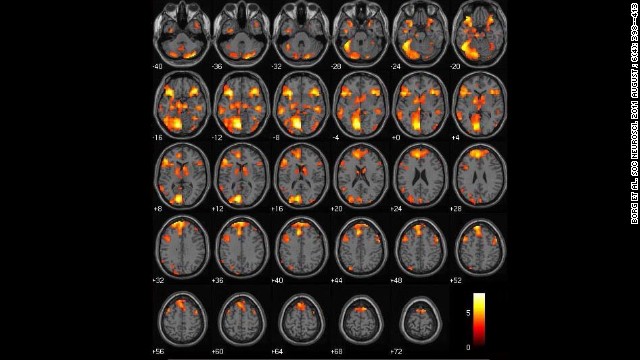From: CNN
By Elizabeth Landau, CNN
dated 8:04 AM EDT, Thu March 27, 2014

This image shows differences in brain activity between people who judge an act wrong and others who say it's not wrong
(CNN) -- Imagine a CEO wants to profit from a
venture that, by the way, involves emitting pollution toxic to the
environment, but she doesn't care because the goal is profit.
Is the CEO intentionally
harming the environment? What if, instead, the CEO is pushing a project
that happens to help the environment -- is the benefit any more or less
intentional than the harm in the other scenario? How do you morally
judge each of these situations?
Science is still trying
to work out how exactly we reason through moral problems such as these,
and how we judge others on the morality of their actions, said Walter
Sinnott-Armstrong, professor of practical ethics at Duke University.
Researchers interested in
the neuroscience of morality are investigating which brain networks are
involved in such decisions, and what might account for people's
individual differences in judgments. Studies on the topic often involve
small samples of people -- functional magnetic resonance imaging is
time-intensive and expensive -- but patterns are emerging as more
results come in.
No comments:
Post a Comment